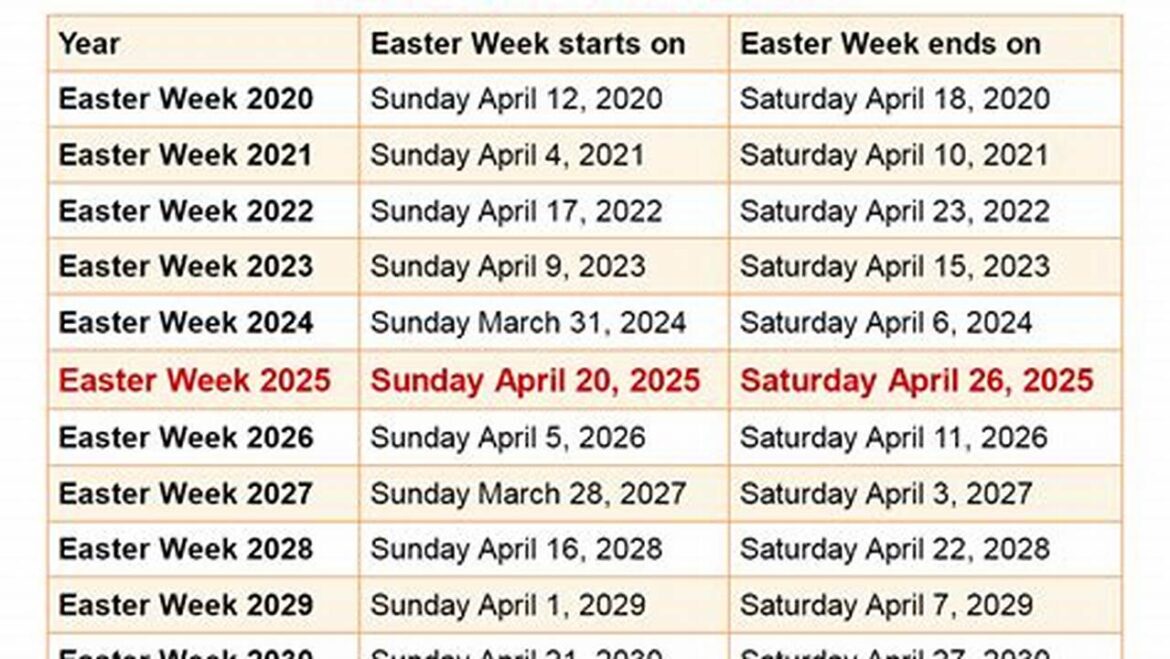The date of Easter Sunday is a fluid yet pivotal element in the Christian calendar, its celebration extending beyond mere festivity to encompass profound theological significance. It serves not only as a commemoration of the resurrection of Jesus Christ but also as a reminder of hope, renewal, and the promise of eternal life. Understanding the shifting dates of Easter can provide believers with deeper insights into the rhythm of their faith and the historical events surrounding this sacred occasion.
Every year, Easter is celebrated on the first Sunday after the first full moon occurring on or after the vernal equinox. This method of calculation, known as the Paschal Full Moon, was established by the Council of Nicaea in 325 AD. It reflects the ancient practice of aligning Christian feasts with Jewish holidays, specifically Passover, which is foundational to the Easter narrative, as it is believed that Jesus was resurrected following Passover.
The variability of Easter Sunday dates creates a broad spectrum of observation, influencing not only ritual practices but also the liturgical calendar. Let’s delve into a reference guide detailing the upcoming Easter Sunday dates through the years, illuminating the timeline of this poignant event.
Easter Sunday Dates
- 2023: April 9
- 2024: March 31
- 2025: April 20
- 2026: April 5
- 2027: March 28
- 2028: April 16
- 2029: April 1
- 2030: April 21
- 2031: April 13
- 2032: March 28
- 2033: April 17
- 2034: April 9
- 2035: March 25
- 2036: April 13
- 2037: April 5
- 2038: April 25
- 2039: April 10
- 2040: March 28
- 2041: April 17
- 2042: April 2
- 2043: April 21
This quick reference guide demonstrates how Easter can occur as early as March 22 and as late as April 25. Such variability arises from the interplay of lunar and solar cycles, echoing the ancient recognition of the natural world’s rhythms and their spiritual implications.
Curiously, the tradition of celebrating Easter is imbued with rich symbolism. The egg, for example, represents new life and resurrection. This association permeates various cultures, with customs varying widely from the colorful egg-tapping games in Eastern Europe to the chocolate eggs of the modern Western celebration. Each tradition invites the faithful to reflect upon the mystery of resurrection that lies at the heart of Easter.
It is essential to recognize that Easter does not stand alone in its grandeur. The liturgical season leading up to Easter, known as Lent, serves as a time of penance, fasting, and spiritual introspection. Beginning on Ash Wednesday, Lent lasts for 40 days, not including Sundays, mirroring Jesus’ 40 days of fasting in the wilderness. This preparatory period encourages believers to engage in acts of service, personal reflection, and prayer, effectively transforming the experience of Easter into a culmination of spiritual renewal.
The significance of Easter also transcends temporal bounds, reaching deep into the theological realms of Christianity. The resurrection is the fulcrum upon which Christian faith pivots. It conveys the pivotal message that death does not have the final word, and through Christ’s resurrection, believers are offered the hope of their own resurrection during the eschatological promise of Christ’s return. In this light, the fluctuating dates of Easter become a prompt to contemplate one’s spiritual journey and the transformative power of faith.
As Easter approaches each year, congregations around the globe engage in varied practices to commemorate this holy occasion. From vibrant sunrise services that welcome the dawn to solemn observances reflecting on the suffering of Christ, the diversity of worship styles exemplifies the universal theme of hope and renewal. In various cultures, communal meals, festive gatherings, and sharing of stories further emphasize the importance of community in the expression of faith.
Moreover, Easter’s fluidity challenges the believer to embrace uncertainty and the transient nature of life itself. The absence of a fixed date may evoke a sense of anticipation, an invitation to rediscover the joy of resurrection year after year. It cultivates a space for spiritual growth and contemplation—a yearly reminder that faith, like the seasons, oscillates between dormancy and vibrant life.
As we reflect upon the ever-evolving dates of Easter, it becomes evident that this sacred observance is a profound melding of time, faith, and tradition. Whether one approaches it with solemn reverence or jubilant celebration, Easter serves as a poignant reminder of the transformative power of hope and the promise of renewal that lies within the Christian faith. Let each Easter be a clarion call to examine and rejuvenate one’s faith, allowing the spirit of resurrection to breathe anew in every heart.



